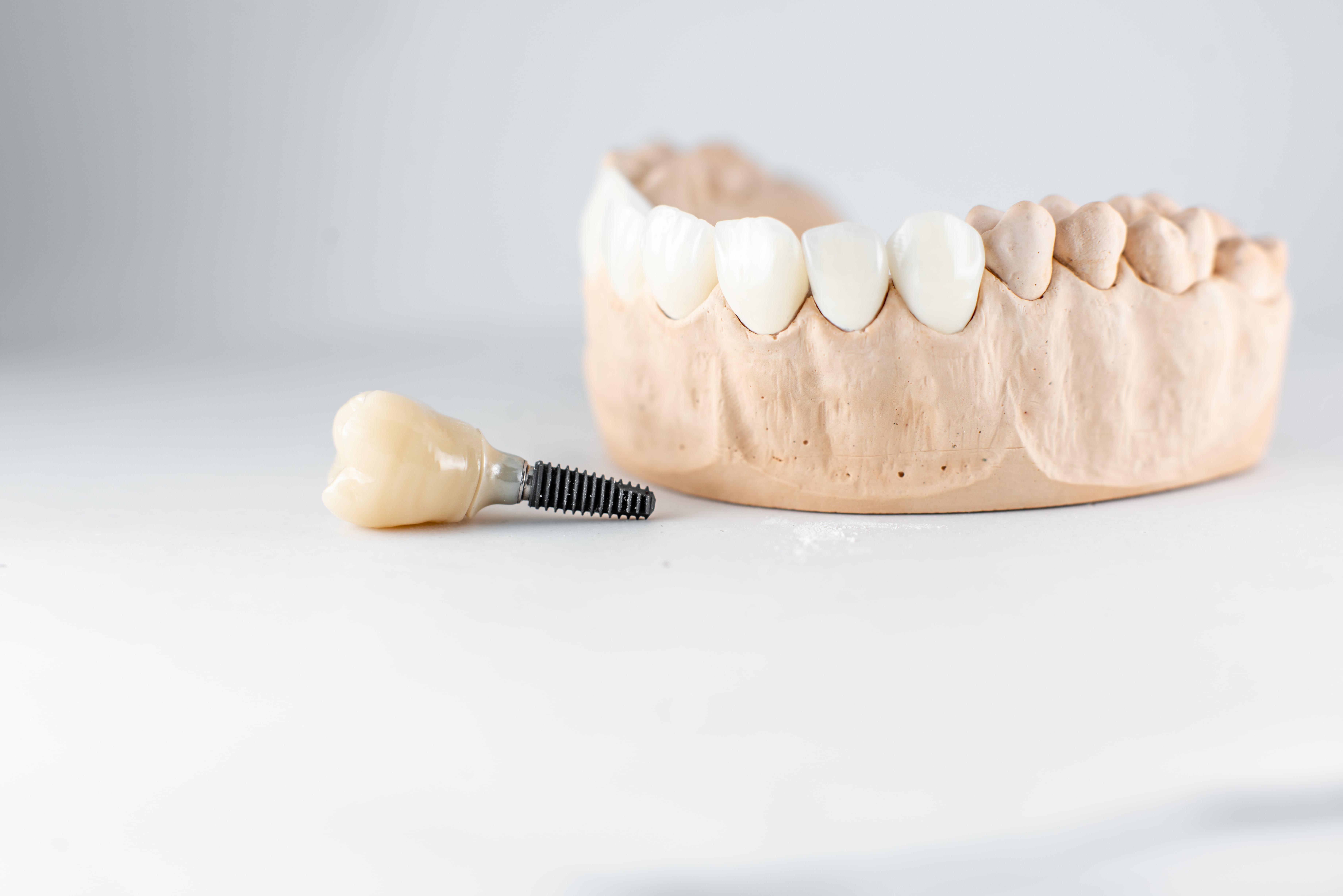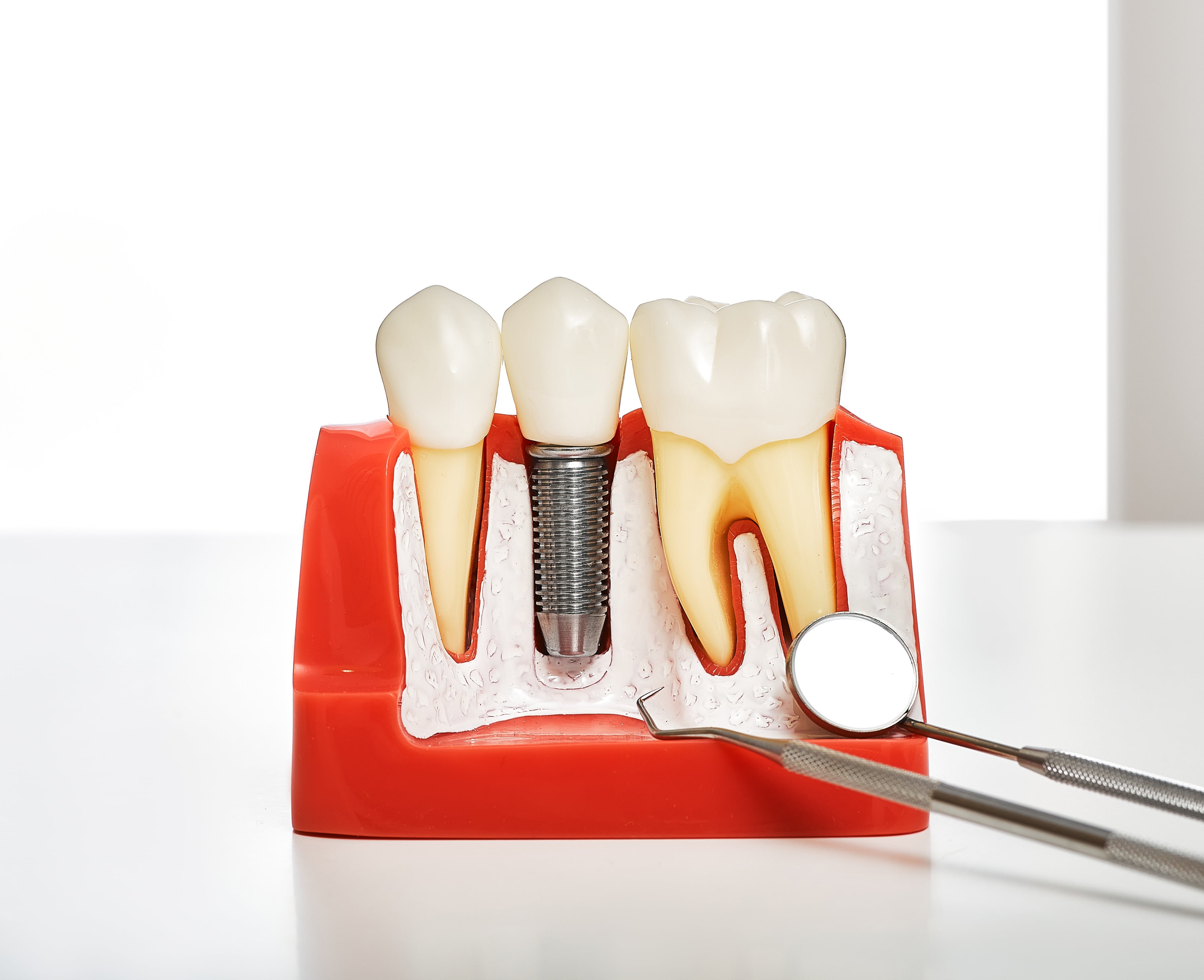Losing a tooth—whether from injury, decay, or gum disease—can be stressful. But modern dentistry makes restoration easier and more reliable than ever with dental implants. These durable, natural-looking replacements restore both the look and function of your smile, giving you the confidence to eat, speak, and live comfortably again.
If your dentist has recommended implants, proper preparation can significantly impact the success of your treatment. In this guide, we’ll walk you through what dental implants are, how the procedure works, and—most importantly—how to prepare for dental implant surgery so you can heal quickly and enjoy lasting results.

Dental implants are modern, long-term replacements for missing teeth that look, feel, and function just like the real thing. Each implant is made up of three main parts:
What makes dental implants different from other options, such as bridges or dentures, is their secure, bone-anchored foundation. Through a natural process called osseointegration, the titanium post fuses with your jawbone over time, creating exceptional stability and strength.
As a result, dental implants do more than just replace a missing tooth. They also:
In short, dental implants are the closest thing to getting your natural tooth back—durable, realistic, and built to last for decades.
Dental implants are considered the gold standard for tooth replacement, and for good reason. They don’t just fill a gap—they restore comfort, function, and confidence. Here’s why so many patients and dentists prefer implants over traditional options like bridges or dentures:
Implants are built to last. Once fused with the jawbone, the titanium post becomes as strong as a natural tooth root. With proper care, dental implants can last 20 years or more, often for life. You can enjoy your favorite foods without fear of breakage or slippage.
Because the implant is integrated directly into your bone, it won’t move or shift like traditional dentures might. You’ll be able to chew, speak, and smile with complete confidence.
Missing teeth can cause neighboring teeth to drift out of alignment, leading to bite problems and uneven wear. Implants fill those gaps and help keep your entire smile stable and healthy.
When a tooth is lost, the jawbone beneath it begins to deteriorate due to a lack of stimulation. Dental implants act as artificial roots, preserving bone density and preventing that “sunken” facial appearance over time.
Each implant is topped with a custom-designed crown that matches your natural teeth in color, shape, and size. Once placed, it’s virtually impossible to tell the difference.
A complete smile changes more than your appearance—it boosts your self-esteem and quality of life. With dental implants, you can smile freely again, knowing your teeth look and feel just right.

Getting dental implants is a multi-step process, but it’s more straightforward and comfortable than most patients expect. At each stage, your dentist ensures precision, safety, and care to give you lasting results.
Your journey begins with a detailed consultation. Your dentist will review your dental and medical history, take digital X-rays or 3D scans, and examine your gums and jawbone. This helps determine if you’re a good candidate for implants and whether additional procedures—like bone grafting or extractions—are needed before placement.
Once you’re ready for surgery, the dentist will gently insert a titanium post into your jawbone where the missing tooth’s root once was. This is typically done under local anesthesia or mild sedation for your comfort. The post acts as a secure anchor for your future crown or bridge.
After placement, the implant needs time to fuse with the bone through a natural process called osseointegration. This usually takes 3–6 months, depending on your health and healing speed. During this phase, the bone grows around the implant, locking it firmly in place—just like a natural root.
Once healing is complete, a small connector piece called an abutment is attached to the implant. This will serve as the foundation for your final crown.
The last step is the exciting one! Your dentist will attach a custom-designed crown, bridge, or denture that matches your natural teeth perfectly. The result is a fully functional, lifelike tooth that looks and feels completely natural.
Most patients are surprised by how comfortable and smooth the process is—and how transformative the results can be.
Related Reading: What is the Process of Getting Dental Implants?
Preparation is key to ensuring your dental implant surgery goes smoothly and your recovery is quick. Here’s what you can expect and how to get ready:
Before proceeding, your dentist will conduct a thorough examination and review your treatment plan. This may include 3D imaging, X-rays, and a discussion about your medical history and medications. If you have conditions such as diabetes or heart disease, your dentist may consult with your physician to ensure that everything is well-managed before surgery.
In some cases, patients need a bit of jaw preparation before implants can be placed. If your bone density is low or uneven, your dentist may recommend:
If your procedure involves general anesthesia or sedation, you’ll need to fast for 8–12 hours beforehand. Your dentist may also advise you to avoid certain medications temporarily or to take prescribed antibiotics before surgery to prevent infection.
Wear loose, comfortable clothing on the day of your procedure, and arrange for someone to drive you home if sedation will be used. Plan to rest afterward—take the day off work and prepare soft foods, such as yogurt, soups, or smoothies, for the first 24 hours.
If you’re feeling nervous, that’s completely normal. Ask your dentist any questions you may have about the procedure or recovery. Understanding what’s ahead helps reduce stress and ensures you feel confident going in.
Pro Tip:
Avoid smoking or using tobacco for at least two weeks before and after surgery. It can slow healing and affect how well your implant fuses with the bone.

Caring for your dental implants is simple — and following a few easy habits will help your new smile stay strong and beautiful for decades.
Even though implants can’t decay, your gums and surrounding teeth still need care. Brush twice a day using a soft-bristled toothbrush and low-abrasive toothpaste to avoid scratching the crown’s surface.
Don’t forget to floss daily — or use an interdental brush or water flosser — to clean around the implant and remove trapped plaque.
Visit your dentist at least every six months for exams and professional cleanings. These visits allow your dental team to check your implant, gums, and bone health. Early detection of any issues (like inflammation or bone loss) helps prevent complications and ensures your implant lasts for years.
Avoid chewing tough foods — like ice, hard candy, or nuts — especially right after surgery. While implants are strong, these habits can still damage your dental crown or stress the surrounding structures.
Smoking is one of the leading causes of implant failure. Nicotine restricts blood flow, slows healing, and increases the risk of gum infection. Quitting — even temporarily — significantly improves your implant’s success rate and overall oral health.
If you grind your teeth at night (a condition known as bruxism), talk to your dentist about a custom night guard. It can protect your implant and natural teeth from pressure-related wear.
If you notice any pain, swelling, looseness, or discomfort around your implant site, contact your dentist immediately. Early treatment can prevent small issues from turning into serious problems.
There are several key considerations when determining whether you are a suitable candidate for dental implants. If you have a damaged tooth, your dentist will consider the health of the remaining tooth and determine whether it can be saved. Dentists generally prefer to maintain at least a portion of a healthy tooth if possible.
Another consideration is the condition of your jawbone. You may need to undergo procedures to provide the bone required to hold the implant. These procedures can be costly.
Your insurance coverage sadly, is another factor you’ll need to consider. Some insurance plans don’t cover dental implants or offer very limited coverage. If this is the case, you’ll need to consider the available payment options.
If you have a gap in your teeth or you have a damaged tooth or teeth, don’t wait around. It’s not just an aesthetic issue. A gap in your teeth or damage can lead to major oral health issues in the future. Instead, schedule an appointment with your dentist today. They will take a look at the gap or damage and determine the best course of action for treatment.